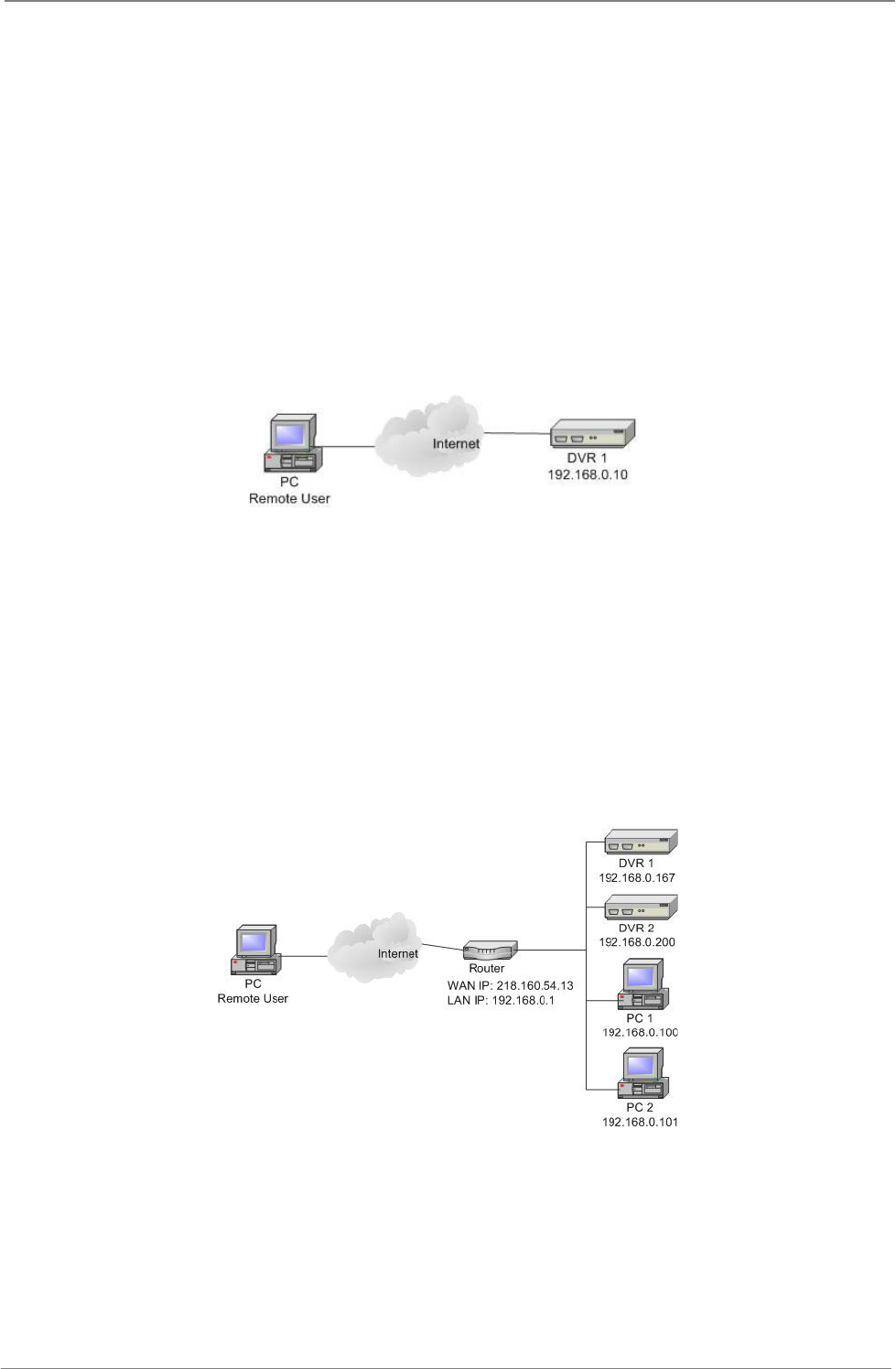
TL H.264 DVR User’s Manual
105
Appendix C: Setting up a DVR behind a Router
This appendix describes how to set up a router if the DVR connects to the internet via a
router.
To properly operate a web server, e.g. a DVR, users have to set up both the IP and port of
the DVR, which are essential for data and command transmission. The port setting is
adjustable in OSD setup menu of the DVR and only one port is needed to do remote
operation. Typically and by the default, the DVR operates on port 80, which is well known
as the http port. Please make sure that port 80 is not blocked by the ISP. Otherwise, a
different available port shall be reset and the setting of the DVR shall be changed.
In case a router or sometimes a DSL modem is in place, the real IP is now assigned to the
router instead of the DVR. The DVR is located behind the wall (router) and operates on
virtual IP. In most cases, virtual IP starts with 192.168.x.x. The router has two IP: one is real
IP (WAN IP); the other is virtual IP (LAN IP). The virtual IP would be 192.168.x.1. When the
remote users want to operate the DVR, they will have to send command to the real IP, i.e.
the router. Then the router has to map (forward) the command to the DVR. Thus, it is
required to set up the router for port mapping (forwarding) before images from the DVR can
be remotely viewed on a PC.
See the router manufacturer's websites for more instructions on port mapping.


















